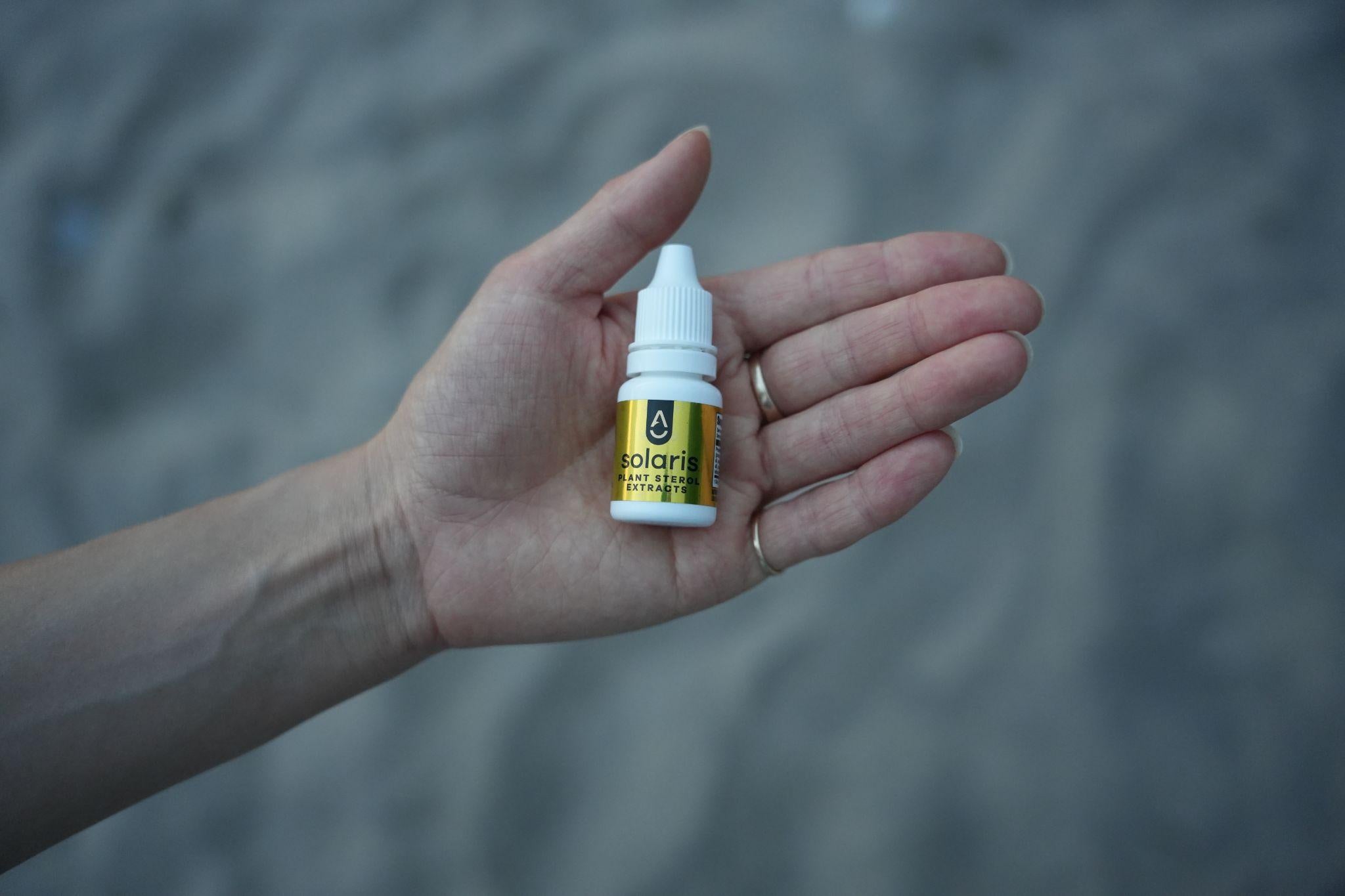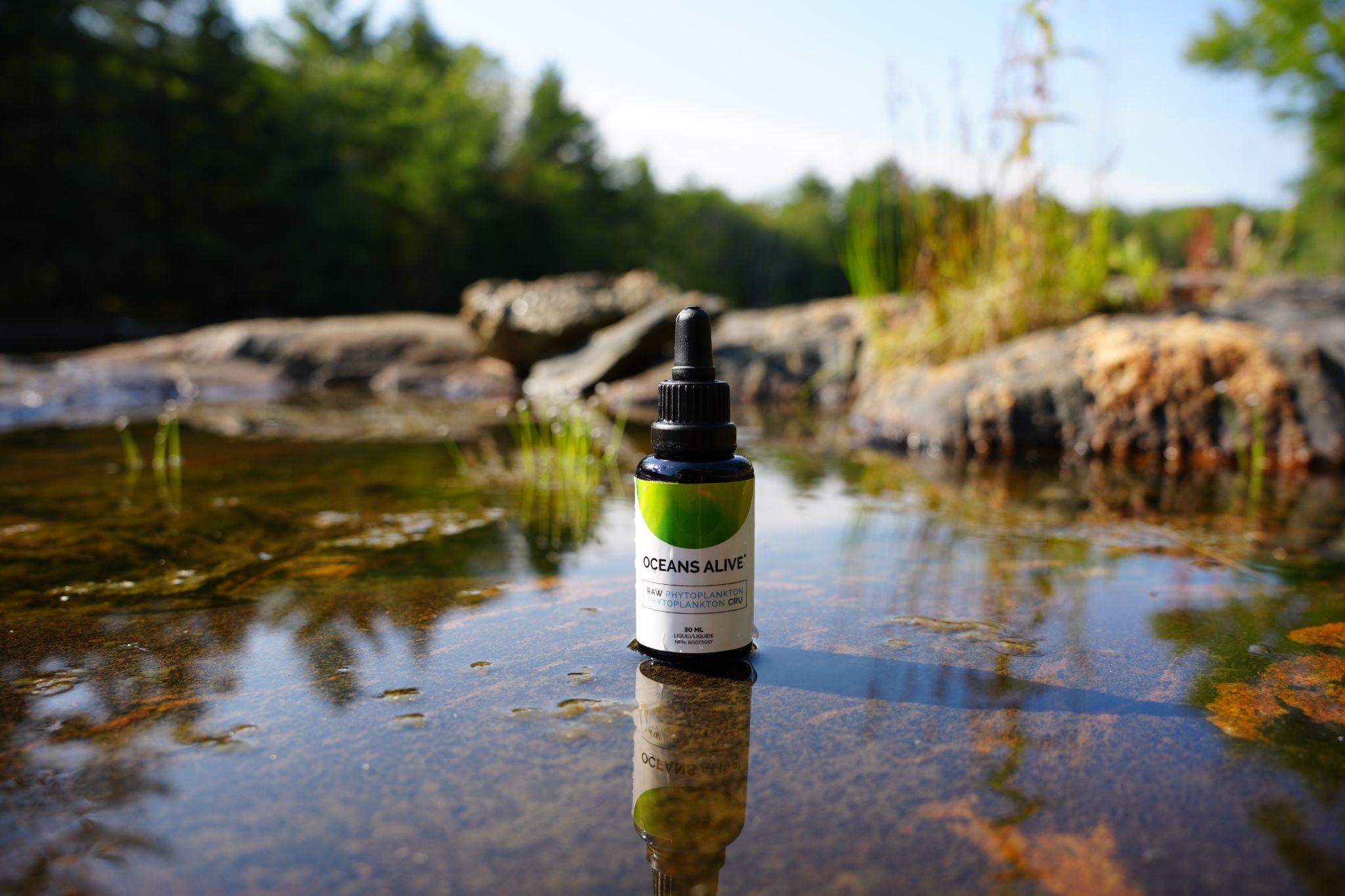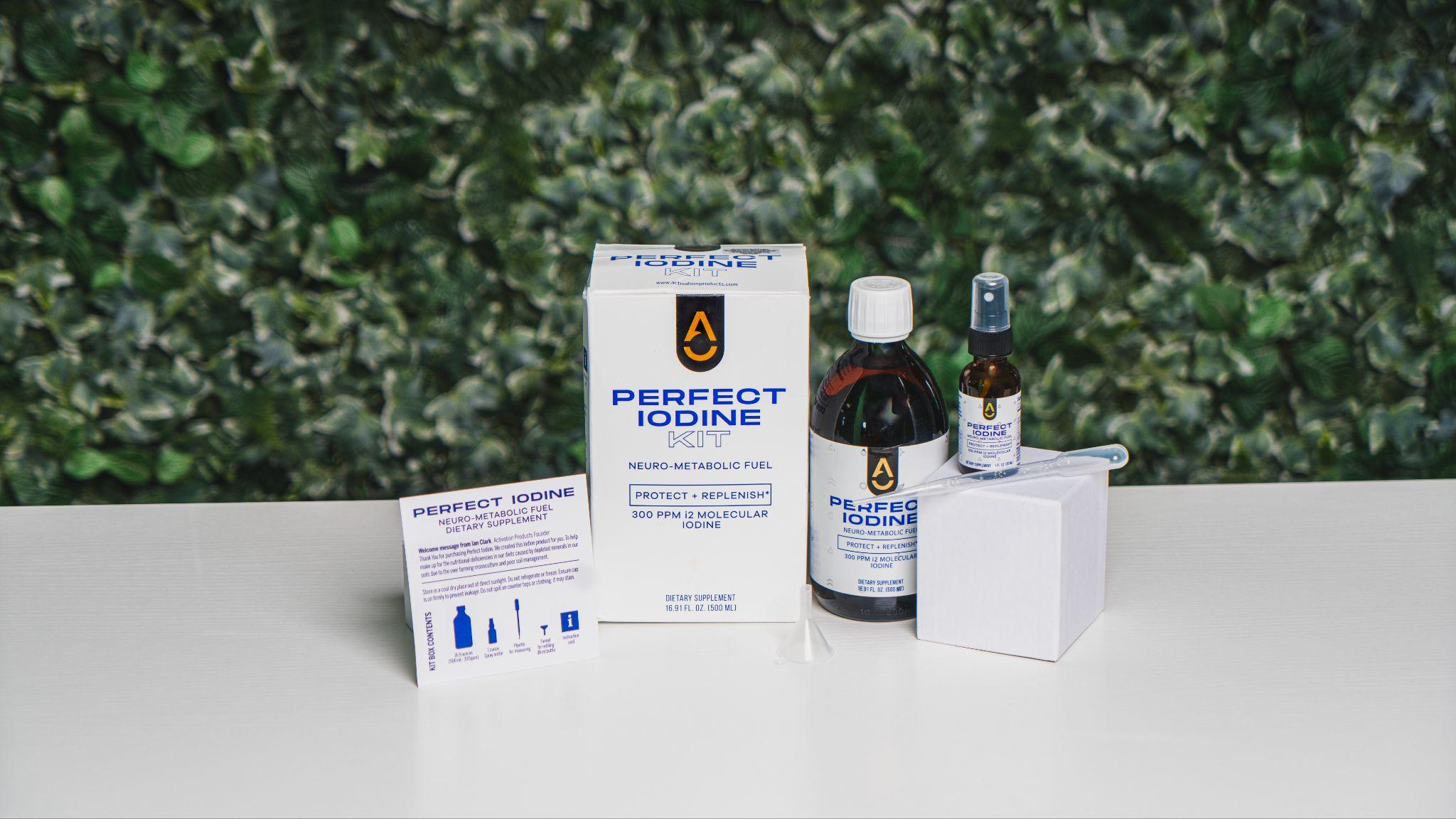
If you're lucky, you probably don't spend much time thinking about your bladder or your kidneys.
But if you're like the 25 million other American adults who live with incontinence, you probably wish you could forget them.
Your bladder and kidneys are vulnerable to infections and damage. Most people don’t pay much attention to them until they start to experience uncomfortable symptoms.
These two organs, amongst other important roles, are responsible for part of your body's natural detox process. Your kidneys dispose of water-soluble waste by creating urine, which travels down to the bladder via ureter tubes. Your bladder stores the urine, so that you have some control over when you release it.
The relationship between these two organs goes beyond that, though. If you have kidney stones, for example, they can travel to the bladder via the ureter tubes and cause complications there. Urinary tract infections that may begin in the bladder can travel to the kidneys if left untreated. More worryingly, if you have bladder cancer, it could spread to the kidneys, or cause chronic kidney disease and inflammation.
The muscles that support the bladder are frequently strained by the weight and pressure of pregnancy and childbirth, meaning that many women experience mild to severe incontinence in the days and even years after they give birth.
These muscles, including the pelvic floor, can be further weakened by age and the hormonal shifts associated with menopause.
There are preventative care measures you can take to avoid those problems and maintain strong bladder and kidney function.
If you’ve already experienced problems like bladder or urinary tract infections, kidney infections, overactive bladder, urge or stress incontinence or symptoms of chronic kidney disease, don't despair! There are natural ways to support and heal these vital organs, and possibly reverse the damage.
Pump your pelvic floor
The pelvic floor is a group of muscles and ligaments. It extends from the pubic bone to the tailbone and attaches to the sits bones (so think abs to lower back and all the way across the pelvic region).
In addition to supporting the pelvis and the spine, it also maintains continence (i.e. it helps to prevent you from peeing your pants) and supports our internal organs.
When it comes to your pelvic floor, prevention is the best first step, though you can strengthen it even if incontinence has already begun to be an issue for you.
Many people are familiar with kegel exercises, previously thought to be the best way to strengthen the muscles 'down there'. Biomechanics experts now know that squats are a much better choice as they strengthen and tone the whole area.
Squat several times a day. Whenever you think of it. Squat as low as you can while keeping your heels flat on the floor and maintaining the curve in your lower back (your butt should stick out behind you). Do five squats every time you go to the bathroom, do ten squats when you get out of bed in the morning, you get the idea.
Squatting like this will help to keep your bladder where it belongs and will make it easier for you to 'hold it' when it gets full or when you feel a sneeze coming on.

Stay hydrated
A lot of the time, when people have bladder issues, they restrict their fluids but it's important to drink 6 to 8 glasses of water a day.
If you can reach that minimum it’ll help your body to flush out bacteria and toxins.
Eliminating these toxins prevents bacteria buildup that can lead to bladder and kidney infections. It might also help to prevent disease.
Remember that recurrent infections can weaken the bladder and kidneys over time so if you don't keep your urinary system flowing you can make incontinence problems worse over time.
Greatist.com write that: “Research has found that the greater the fluid intake, the lower the incidence of bladder cancer, with more significant results when the fluid is water. One possible reason could be that urinating more frequently prevents the buildup of bladder carcinogens.”
We know that staying hydrated has a very long list of health benefits for your body, so it’s not surprising that it’s good for your bladder and kidneys too.
If nocturnia (waking up in the night to pee) is an issue for you, try cutting back on fluids a couple of hours before bedtime.

Cut back on caffeine
Even though we’ve established that hydration is key, there are certain beverages you should limit.
Many people enjoy multiple cups of tea and coffee in a day. Sodas are also popular. I know a few people that don’t drink anything else. The thing is, too much caffeine can weaken your bladder and kidneys and can cause serious issues.
Caffeine is a diuretic, which means it causes your body to make more urine, which can lead to overactive bladder. In an already weakened bladder this can also result in incontinence.
An additional concern for those with overactive bladder is that they sometimes try to 'hold it in' for long periods, which can lead to bacteria buildup in the bladder. Infections and worse can result from the presence of these harmful bacteria.
Where your kidneys are concerned, too much caffeine can actually lead to cancer.
According to fitness coach Jillian Michaels: “Kidney stones form by precipitation of solid masses out of your urine. According to the NKUDIC, the most common form of kidney stone is calcium oxalate. Caffeine may act as an irritant for those who have kidney stones because of its diuretic effects and it may also contribute to their formation because of the oxalate in coffee. The NKUDIC suggests that you limit coffee intake to one or two cups per day to limit its effects on kidney stones.”
Some excellent alternatives include green or herbal teas or dandelion coffee. These have additional health benefits to offer as well and are considered healthy hydration options (that means they count towards your water quota!).

Cancel the cocktails
Just like caffeine, alcohol is a diuretic, so it increases urine production.
AWomansHealth.com talks about the effect drinking can have on the bladder: “alcohol has a direct irritating effect on the mucosa, or lining, of the bladder. Finally, many alcoholic drinks combine alcohol with other bladder irritants, such as fruit juice and carbonated liquids.”
Bladder irritants can not only increase the frequency of bathroom visits, but they also increase the risk of incontinence. Plus, when there is damage to the bladder lining, it becomes more vulnerable to toxins and bacteria that can lead to infection and cancer.
When it comes to your kidneys, alcohol can do some serious damage there too. Occasional or moderate drinking won't usually cause harm but binge drinking is another story.
Excessive alcohol intake can cause acute kidney damage and lead to chronic kidney disease. Long-term overuse of alcohol can even result in irreversible damage.
Besides their urine production function, your kidneys are also responsible for filtering blood and helping to process nutrients, like proteins. A loss of kidney function leaves your body vulnerable to disease and heart conditions, amongst other concerns.

Do we have to tell you that smoking is a bad idea?
Smokers beware, most cases of bladder cancer actually result from smoking. It’s also one of the causes of chronic kidney disease and kidney cancer.
Through smoking, and secondhand smoke, people access the most common carcinogens. This is why this habit is attributed with causing so many cases of bladder and kidney cancer, and 14 other varieties at least.
Bladder cancer as a result of smoking is actually very common. There are close to 400,000 new cases diagnosed around the world annually.
Basically, as a result of oxidative stress, poor circulation and inflammation, your bladder and kidneys are weakened. Since one of their main functions is cleansing the body, they are exposed to carcinogenic toxins from cigarettes, cigars, pipes and so on as they move through your system. When those toxins sit in the bladder or kidneys for any length of time they can cause inflammation and cell mutations leading to tumors.
To protect your urinary system, and really, your whole body, it’s definitely worth the effort to break this harmful habit.
Exercise more
An active lifestyle is just better for your whole body and overall health.
In addition to the squats we've already discussed, a more general exercise regime can help your bladder and kidneys too.
Your kidneys will enjoy better blood circulation as a result of regular physical activity, which helps to prevent most kidney issues.
In addition to that, regular exercise helps with healthy weight goals. Overweight individuals are more likely to develop bladder and kidney problems. This is as a result of added pressure on the organs, and a larger probability of developing blockages that can lead to bacterial infections.
Getting the recommended 30 minutes of physical activity a day can make a huge difference to the condition of your bladder and kidneys.
Eat right
Most of the food-related advice for a healthy bladder and kidneys has to do with avoiding stuff that irritates your bladder and replacing it with things that are neutral.
We've created a handy list of foods to avoid along with suggestions for what to swap in. You can get that free below.
What can be frustrating is that foods that might be good for your kidneys, may actually be detrimental for your bladder and vice versa. For instance, citrus fruits are good for preventing kidney irritation but they are also associated with bladder irritation.
In general, alkaline foods are good for your bladder, as are foods high in calcium. Fruits and vegetables that have a lot of water in them or that have a mild diuretic effect (like watermelons, celery and parsley) may be beneficial.
There is one food though, that has been shown in clinical studies to soothe bladder irritation and even strengthen the muscles that support your bladder! Plus, it also prevents kidney stones.

Styrian pumpkin seed oil
This delicious oil is a strong antioxidant with antibacterial and anti-inflammatory properties. Beyond your urinary system, it has a lot of other benefits too.
Pumpkin oil has been widely studied for its beneficial effects on the bladder and kidneys. There is very good evidence that it can help to both prevent and repair damage to these organs. It affects both the organs themselves and the muscular system surrounding them in positive ways.
Better still, many people notice an improvement in urinary frequency and urgency within just a few weeks of taking the oil every day.
Styrian pumpkin oil is the most nutritious variety of pumpkin seed oil in the world. Styrian pumpkins are grown exclusively for their seeds because they are so beneficial. The pumpkins themselves are used as compost once the seeds have been removed!
If you’re interested in reading more about Perfect Press® Styrian Pumpkin Oil, click here.
Oh, did we mention that Styrian pumpkin oil is delicious? This might just be the easiest oil to add to your day.
Remember…
Your bladder and kidneys might not come up in conversation as often as your heart or brain health might, but they are extremely important to your overall wellbeing and quality of life.
There can be a lot of stigma around the health of these organs, which is why a lot of people don't seek help or treatment when they start having issues.
Prevention is ideal, but if you are already in a situation where your bladder and/or kidneys need help, you are not powerless to act. A few changes in your day to day habits could make all the difference.
Make Styrian Pumpkin Oil the most delicious part of your prevention plan!
Related Links:
http://www.everydayhealth.com/bladder-health-pictures/keep-your-bladder-healthy.aspx#05
http://www.healthline.com/health/chronic-kidney-disease#causes2
http://www.webmd.com/urinary-incontinence-oab/picture-of-the-bladder#1
http://greatist.com/health/health-benefits-water
http://www.webmd.com/smoking-cessation/news/20001016/another-danger-for-smokers-kidney-disease
https://www.ncbi.nlm.nih.gov/pubmed/17085829
http://www.webmd.com/urinary-incontinence-oab/news/20100930/caffeine-and-bladder-problems-linked#1
http://www.europeanurology.com/article/S0302-2838(15)00548-5/fulltext/the-role-of-tobacco-smoke-in-bladder-and-kidney-carcinogenesis-a-comparison-of-exposures-and-meta-analysis-of-incidence-and-mortality-risks
http://awomanshealth.com/healthy-diet-happy-bladder/
https://www.kidney.org/news/kidneyCare/winter10/AlcoholAffects






Top 5 Secret Ocean Superfoods You’ve Probably Never Tried
Magnesium for Oral Health